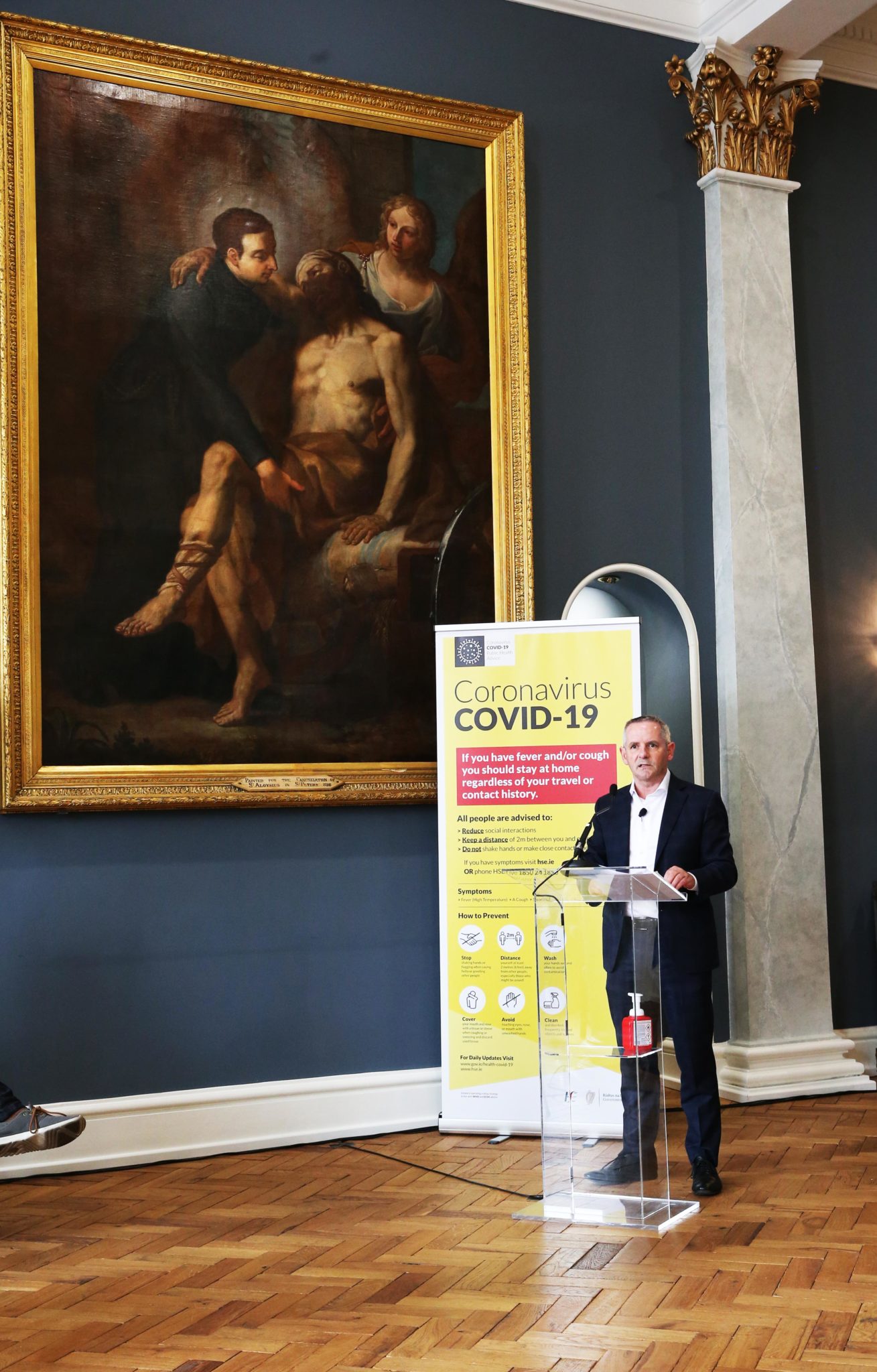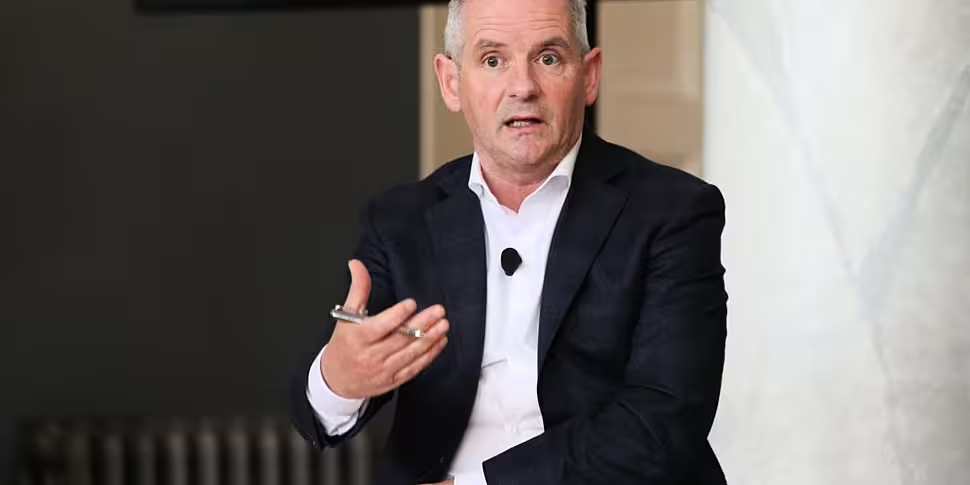The HSE has said the number of patients in Ireland’s Intensive Care Units has dropped by 55% since the height of the COVID-19 outbreak.
Speaking at the weekly briefing this afternoon, HSE Chief Executive Paul Reid said there were 72 patients in intensive care last night – down from a peak of 160.
There are currently 161 ICU free ICU beds in the health service and 1,242 general acute beds.
HSE due to begin it’s weekly briefing. This week it’s coming from the Mater. pic.twitter.com/ImnMcX4M7b
— Ben Finnegan (@_BenFinnegan) May 10, 2020
Mr Reid warned that the cost of supplying Personal Protective Equipment to the health service moving forward is expected to be €1bn per year.
HE said PPE is currently costing around €250m per quarter and admitted there are also "very significant costs" associated with testing and contact tracing.
“Our PPE projections a based on the high demand and the price, the extra volume we are using and the extra distribution we are having to supply across the whole health care system," he said.
“Our projections are that that cost will be likely over the year to be €1bn - €250m a quarter for PPE in the Irish healthcare system.
"There are similarly very significant costs on our contact testing and tracing; however the costs of not investing in these are much higher in terms of the cost to our society of not unlocking restrictions.”
 HSE Chief Executive Paul Reid in the Pillar Room at the Mater Hospital in Dublin, 10-05-2020. Image: Leon Farrell/Photocall Ireland
HSE Chief Executive Paul Reid in the Pillar Room at the Mater Hospital in Dublin, 10-05-2020. Image: Leon Farrell/Photocall IrelandMeanwhile, he said officials are on-course to meet the long-promised target of 100,000 tests per week by next week.
He said it now takes an average of two-and-a-half days for patients to get their results after having their swab taken.
Still on schedule to have 100,000 test capacity by next Monday, according to Paul Reid.
— Ben Finnegan (@_BenFinnegan) May 10, 2020
Mr Reid said hospitals would now recommence non-COVID service but warned that “it won’t be easy.”
He said officials would initially prioritise three non-COVID areas - cancer treatments, urgent surgery and maximising the use of private hospitals.
He said Ireland’s hospitals can’t go back to the overcrowding crisis they were dealing with before the pandemic and said it is essential t keep capacity under 80% to protect the public and staff.
Paul Reid has said they've had nothing but full support from Government in regards to funding. He says they get everything they need. Says his comment earlier about "expense" is more for long-term that it will cost a lot to manage the disease.
— Ben Finnegan (@_BenFinnegan) May 10, 2020
He warned that there are still “a few very clear uncertainties” about what will happen as countries begin to ease lockdowns around the world.
“Planning in that level of uncertainty will involve some very key challenges for us at the HSE and indeed for Ireland overall,” he said.
“Firstly, what we can’t do in the next phase is max-out the capacity in the health system while trying to deal with the virus.
“Secondly, we need to have a relentless focus and supports in terms of vulnerable groups for the next phase.
“The third point I would make is the cost of protecting our staff and the public through investment in PPE and contact tracing – the two key enablers to unlocking society – the costs are very significant and indeed at a scale that nobody could have foreseen a short few weeks or months ago.”
He said the country has no choice but to face these costs as because “relative cost of continuing relentless restrictions on society could be much higher.”
With reporting from Ben Finnegan









